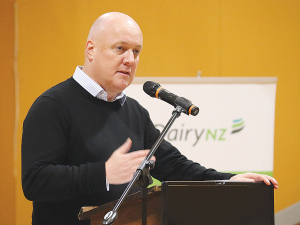OPINION: The National Party’s election pitch to farmers will likely bring much joy to a primary sector that feels drained by over-regulation, labour shortages, rising interest rates, inflation, and the terrible woes of a series of climatic disasters.
National’s agricultural policy ‘Getting Back to Farming’ announced last week is heavily targeted against the Wellington bureaucracy and their political masters.
“Get Wellington out of farming” is a phrase that will resonate with the whole of the primary sector who have been stunned by the expansion of government departments, such as the Ministry for the Environment.
The primary sector has long been critical of some dumb decisions and policies from Wellington which have been proved to be impractical to implement down on the farm.
It will be interesting should National become the government how Christopher Luxon’s promise to reduce the ‘mountains of red tape’ will materialise and how it will reduce the number of regulations. The point made by many commentators is that it’s not so much the number of regulations, but the poor quality of these which is the problem.
Luxon makes a good point when he says that “when farmers succeed, NZ succeeds”. That is true and the role of central and local government should be there to facilitate that in a practical way without compromising the need to meet high environmental and sustainability standards.
What is clear in the policy is that National is committed to the country’s climate change goals. It seems that their policy is to achieve much the same goals but in a more farmer friendly way.
They talk about targeted rules with clear environmental limits, making appointments to reference and advisory groups based on skills and experience, not politics, and making changes to stock exclusion and winter grazing rules.
For horticulture the big news is doubling the Recognised Seasonal Employer (RSE) worker cap – a move to help a sector that is facing one of the biggest crises in its history following the devastation caused by cyclone Gabrielle.
The policy is clearly a pitch to capture or recapture rural voters who feel they have no friends in the political system. Many farmers have talked openly about voting ACT in the upcoming election, and it remains to be seen whether Luxon can woo back or consolidate the rural vote come November.



















